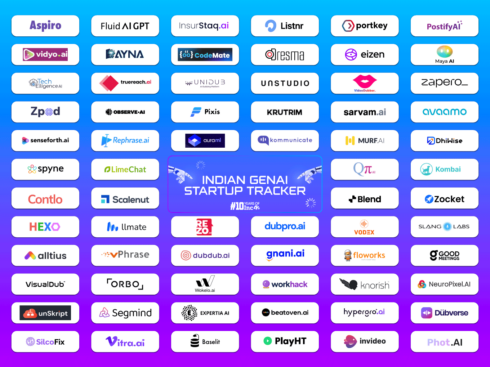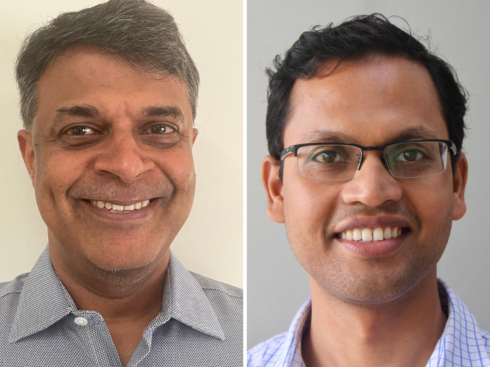
SUMMARY
Globally one person in three does not have access to clean water
AI systems can estimate the composition of contaminants in the water and increase the efficiency of the water treatment plant
Research has shown that using neural networks for optimizing the traditional controllers can reduce energy cost up to 40%
Human settlement has always been dependent on a stable supply of clean water nearby. With the increase in global population and a decline in the quality of our freshwater resources, we are constantly looking for technologies that will ensure a reliable supply of clean water.
The Union Budget 2021-22 announced Jal Jeevan Mission (Urban) to bring safe water to 2.86 Cr households through tap connection. This in line with the Centre’s rural water supply project launched in 2019. Finance minister Nirmala Sitharaman announced an outlay of INR 50,011 Cr for this scheme.
Artificial intelligence (AI) in cleantech offers exactly this promise. A 2019 PwC report titled “Artificial Intelligence and the Fate of Planet Earth” identifies water as one of the four key industries where AI can generate $5.2 Tn.
AI In Water Treatment
Globally one person in three does not have access to clean water. In many areas, water is contaminated with sewage and other toxic effluents, making wastewater treatment a key pillar for a better future.
All substances dispersed within wastewater can have varying levels of toxicity and will require the appropriate treatment in order to minimise their impact on the environment. Wastewater facilities need to leverage technologies that offer real-time visibility into the effluent levels at remote wastewater sites and manage them effectively.
Artificial intelligence and machine learning can be used for more effective water treatment processes as well as to detect problems and assure an early allocation of efforts.
AI systems can help in multiple ways:
Increased Efficiency Of Waste Management Systems
AI systems can estimate the composition of contaminants in the water and increase the efficiency of the water treatment plant by optimising the chemicals used and reducing the energy costs.
Protection From Unknown Contaminants
AI can further enhance current systems by identifying bacteria. This method is far superior to the current method of using chemical strips to identify potentially harmful microorganisms.
The AI system relies on optics and therefore identifies hitherto unknown or new contaminants in the water- something that would take the old method a huge amount of time and cost, to accomplish.
Reducing Operational Costs
Research has shown that using neural networks for optimizing the traditional controllers can reduce energy cost up to 40%. Continuous Monitoring and fault detection software increase efficiency up to 20%, while optimizing the use of their equipment while keeping potential new issues from occurring.
Human-in-the-loop systems also let AI do the grunt work of data collection and analysis, allowing humans to validate the data and make discretionary decisions based on the information.
AI In Irrigation
70% of freshwater use today is in agriculture and the efficiency of use is less than 50%. AI can streamline the use of water in agriculture by reducing the water used in irrigation.
At a basic level AI systems can understand the water present in the soil and estimate the water demand by factoring the stage of crop growth and managing sprinklers and drips. Advanced systems will be able to predict weather conditions, rain, humidity in atmosphere etc and guide the sprinkler systems accordingly.
A widening range of systems and solutions are combining to create the digitally-empowered farm of the future, which utilises the minimum amount of water. Typical emerging AI-based solutions include:
- ‘Precision-based’ AI systems that use a diverse set of data including satellite imagery, climate, temperature, humidity and weather predictions to recommend the best crop management decisions.
- Soil and light sensors sharing data to an AI solution that determines the best time to water crops, use fertilisers, among others
AI In Water Conservation
Closer home, smart meters can identify leaks and pipe bursts in residential apartments leading to more efficient systems. Smart meters deployed in South Korea have brought down the leakage and the costs by 20%.
South East Water, a government-owned water corporation in Australia is implementing software analytics to manage and analyse sensor data installed on water systems, such as flow rate, level, volume totaliser, pressure, and water quality.
To address the water utilities’ growing demand for IoT solutions, telcos are building their capabilities by partnering with IoT platform vendors with expertise in the water sector.
At a city level, these systems will reduce pilferage and wastage and bring a reduction in the unaccounted-for-water. AI systems thus equipped will be able to predict water demand and manage water distribution more efficiently. Research estimates that water utilities’ smart meter installations worldwide will witness a 28% growth rate to reach nearly 400 Mn units in 2026.
As I reflect on how AI will impact WaterScience, I am excited by the possibilities. When we are able to accurately gather data for the water that flows in our homes, we will be able to select our filtering solutions that perfectly fit our need. Every solution we offer will be customised, depending on the hardness, chlorine or other contaminants present in the water.
These are just glimpses of the immense possibilities AI offers for cleantech. As adoption increases, costs will come down. As the cost drops, the systems will become more efficient. This virtuous cycle, when harnessed, will help us preserve the planet’s most precious resource- water. All we need to do today is start.


























